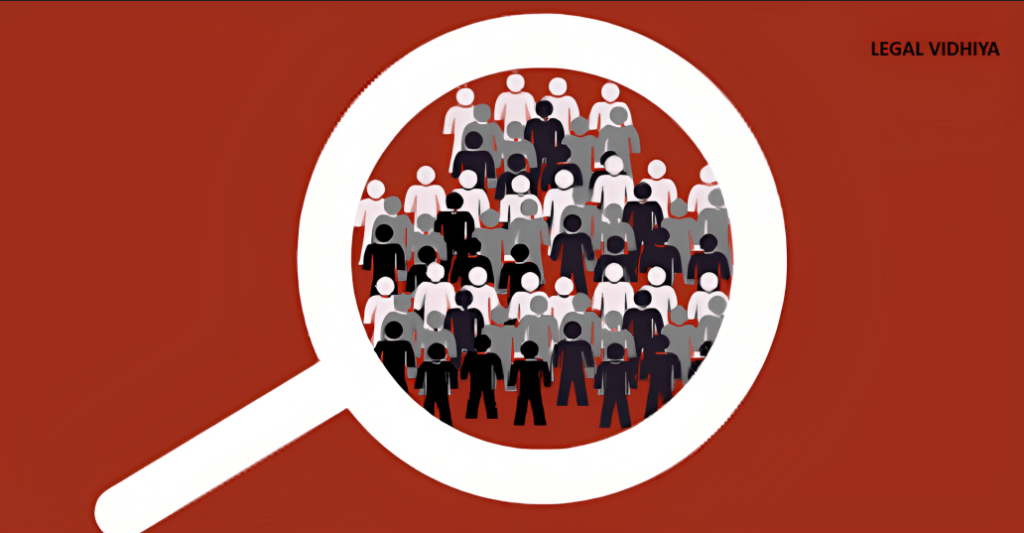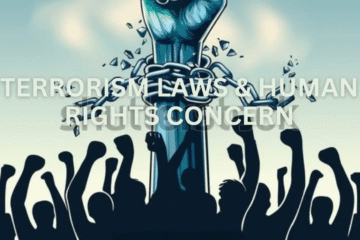
This article is written by Kamya Miglani of 2nd Semester of Asian Law College, Noida, an intern under Legal Vidhiya
Abstract
The right to privacy is a fundamental human right recognized globally, and its preservation is essential for upholding democratic values and safeguarding individual liberties. In recent times, the emergence of advanced surveillance technologies has raised significant concerns about the potential erosion of this right. The Pegasus spyware controversy, which came to light last year, brought these concerns to the forefront in India. This abstract aims to provide an overview of the impact of the Pegasus spyware controversy on the right to privacy in India. The Pegasus spyware, developed by the Israeli company NSO Group, enables sophisticated surveillance capabilities that can infiltrate smartphones and gain access to personal data, including communications, location information, and other sensitive content. Its alleged use by various governments to target journalists, activists, politicians, and other individuals has sparked debates on the potential abuse of such technologies and their implications for civil liberties. In the Indian context, the Pegasus controversy has raised questions about the extent to which the government may be involved in surveillance activities that could potentially infringe on citizens’ rights to privacy. The controversy has prompted legal challenges, a public outcry, and demands for transparency and accountability from the government. India’s Supreme Court has previously recognized the right to privacy as a fundamental right, and this controversy has reignited discussions about the need for robust legal safeguards and regulatory frameworks to protect citizens from unwarranted surveillance.
I. Introduction
Background information on the Pegasus spyware controversy
The Pegasus spyware controversy refers to the recent revelation of a powerful surveillance tool developed by the Israeli cyber intelligence firm, NSO Group. This spyware has been allegedly used by various governments around the world to target journalists, activists, and political dissidents. The controversy has raised significant concerns regarding privacy, human rights violations, and the potential abuse of surveillance technology.
The importance of the right to privacy in India
It has been highlighted in the wake of this controversy, as several Indian journalists and activists were found to be targeted by the Pegasus spyware. This has led to calls for stronger legal protections and regulations to safeguard individuals’ privacy rights in the country. Additionally, there is a growing demand for increased transparency and accountability from governments and companies involved in the development and use of such surveillance tools.
Thesis statement: The recent Pegasus spyware controversy has had a significant impact on the right to privacy in India.
The revelations surrounding the use of Pegasus spyware have raised concerns about the potential abuse of surveillance technology by both state and non-state actors. As a result, there is a pressing need for comprehensive legislation that not only protects individuals’ privacy but also ensures strict oversight and accountability mechanisms to prevent unauthorized access and misuse of such powerful tools. The Pegasus spyware controversy has therefore ignited a national debate on the balance between national security and individual privacy rights in India.
II. Overview of the Pegasus Spyware Controversy
The Pegasus spyware controversy refers to the revelation that the Israeli surveillance firm NSO Group’s software was allegedly used to target and monitor the communications of journalists, activists, and political figures in various countries, including India. This revelation has raised concerns about the potential abuse of surveillance technology and the need for stronger regulations to safeguard individual privacy rights. Additionally, it has also highlighted the importance of international cooperation in addressing the global challenges posed by such invasive tools.
Explanation of what Pegasus spyware is and how it works
Pegasus spyware is a highly sophisticated surveillance tool developed by the Israeli cyber intelligence firm, NSO Group. It is designed to infiltrate mobile devices, such as smartphones, and gain complete access to their data and functionalities. Once installed, Pegasus can remotely activate the device’s microphone and camera, intercept messages and calls, collect location data, and extract sensitive information without the user’s knowledge or consent. Its ability to exploit vulnerabilities in popular messaging apps like WhatsApp has raised concerns about the potential for widespread
Discussion of the revelation that the spyware was used to target individuals in India surveillance and privacy breaches.
The discovery of Pegasus being used to target individuals in India has sparked a national debate on the need for stricter regulations and increased cybersecurity measures to protect citizens from such invasive surveillance tactics. This incident has also raised questions about the accountability of governments and the urgent need for transparency in the use of advanced surveillance technologies.
Brief overview of the international response to the controversy
The controversy surrounding the use of Pegasus has garnered international attention and concern. Several countries, including France and Germany, have called for investigations into the allegations of surveillance abuse. Human rights organizations and privacy advocates have also condemned the use of such powerful surveillance tools, emphasizing the importance of safeguarding individual rights and freedoms in the digital age. The incident has prompted discussions on establishing global regulations to prevent misuse of surveillance technology and protect citizens worldwide.
III. Violation of the Right to Privacy
The violation of the right to privacy is a serious concern that undermines trust in governments and threatens the fundamental principles of democracy. It is crucial for countries to establish robust legal frameworks and oversight mechanisms to ensure that surveillance activities are conducted within the boundaries of the law and respect individuals’ privacy rights. Additionally, international cooperation and collaboration are essential in addressing this issue effectively, as surveillance abuses can have far-reaching consequences beyond national borders.
Discussion of how the use of Pegasus spyware violates the right to privacy in India
One example of surveillance abuse that has raised concerns about privacy rights in India is the use of Pegasus spyware. The use of this powerful surveillance tool allows unauthorized access to personal devices, compromising individuals’ privacy and violating their right to be free from unwarranted intrusion. This violation not only undermines trust in the government but also raises questions about the effectiveness of legal frameworks and oversight mechanisms in protecting citizens’ privacy rights.
Examination of the legal framework for privacy protection in India
Reveals gaps and loopholes that need to be addressed urgently. There is a pressing need for comprehensive legislation that clearly defines the boundaries of surveillance and establishes stringent safeguards to prevent abuse of such powerful tools. Additionally, robust oversight mechanisms must be put in place to ensure accountability and transparency in the use of surveillance technologies by government agencies. Only through these measures can India safeguard its citizens’ privacy rights and restore trust in its governance system.
Analysis of the extent to which the use of spyware infringes upon individual’s privacy right
Is crucial in determining the necessary legal and regulatory framework. It is essential to strike a balance between national security concerns and protecting the fundamental rights of individuals. Moreover, international cooperation and collaboration should be sought to address cross-border implications of surveillance technologies and ensure a global standard for privacy protection.
IV. Implications for Democracy and Civil Liberties
The use of spyware can have significant implications for democracy and civil liberties. It has the potential to undermine trust in democratic institutions and erode the rights and freedoms of individuals. Furthermore, it can enable governments or other entities to engage in surveillance and monitoring of citizens without proper oversight or accountability. This raises concerns about the potential for abuse of power and infringement upon basic human rights such as freedom of speech and expression. Therefore, it is crucial to establish robust legal frameworks that safeguard democratic principles and protect civil liberties
Exploration of the potential impact of the spyware on democratic institutions in India
is particularly important. Given India’s diverse population and complex political landscape, the use of spyware could have far-reaching consequences on the country’s democratic processes. It is imperative to assess the potential risks and take proactive measures to ensure transparency, accountability, and protection of citizens’ rights in the face of such surveillance technologies. – Analysis of the implications for freedom of expression and freedom of the press
is crucial in the context of India. The use of spyware in a country with a vibrant media landscape and a history of press freedom violations raises concerns about the chilling effect on journalists and their ability to report without fear of surveillance or reprisals. It is essential to safeguard these fundamental rights and uphold the principles of democracy by addressing the potential threats posed by spyware to freedom of expression and press freedom in India.
Discussion of the chilling effect
on journalists and press freedom in India is particularly relevant in light of recent reports of surveillance targeting journalists, activists, and opposition figures. This not only undermines the trust between the government and its citizens but also hampers the role of the media as a watchdog and a crucial pillar of democracy. It is imperative for the Indian government to take immediate action to protect the rights of journalists and ensure their safety in order to maintain a vibrant and free press in the country.
Conclusion
Failure to address these issues could have far-reaching consequences for India’s democracy and international reputation. By safeguarding the freedom of the press, the Indian government can demonstrate its commitment to upholding democratic values and fostering an environment where journalists can operate without fear or intimidation.
References
- https://www.ijlmh.com/paper/the-impact-of-the-recent-pegasus-spyware-controversy-on-the-right-to-privacy-in-india/
- https://www.legalserviceindia.com/legal/article-11465-india-s-right-to-privacy-in-light-of-the-recent-pegasus-spyware-incident.html#:~:text=Effect%20of%20the%20Pegasus%20Spyware,of%20its%20data%20and%20communications.
- https://www.hrw.org/news/2021/08/26/india-spyware-use-violates-supreme-court-privacy-ruling
- https://clsnluo.com/2021/10/09/pegasus-spyware-an-invisible-threat-to-peoples-privacy-in-india/




0 Comments